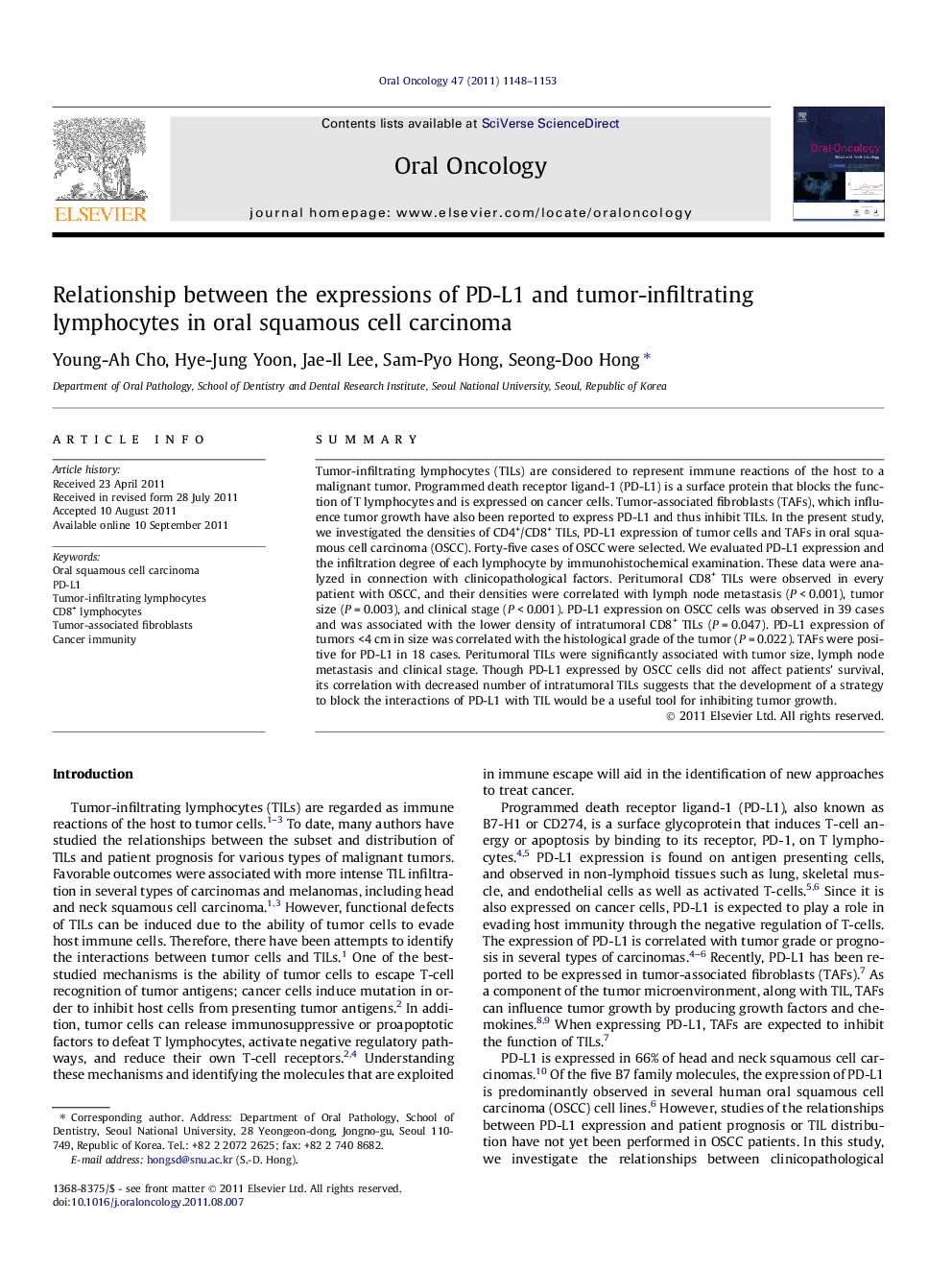| Article ID | Journal | Published Year | Pages | File Type |
|---|---|---|---|---|
| 6055139 | Oral Oncology | 2011 | 6 Pages |
Abstract
Tumor-infiltrating lymphocytes (TILs) are considered to represent immune reactions of the host to a malignant tumor. Programmed death receptor ligand-1 (PD-L1) is a surface protein that blocks the function of T lymphocytes and is expressed on cancer cells. Tumor-associated fibroblasts (TAFs), which influence tumor growth have also been reported to express PD-L1 and thus inhibit TILs. In the present study, we investigated the densities of CD4+/CD8+ TILs, PD-L1 expression of tumor cells and TAFs in oral squamous cell carcinoma (OSCC). Forty-five cases of OSCC were selected. We evaluated PD-L1 expression and the infiltration degree of each lymphocyte by immunohistochemical examination. These data were analyzed in connection with clinicopathological factors. Peritumoral CD8+ TILs were observed in every patient with OSCC, and their densities were correlated with lymph node metastasis (PÂ <Â 0.001), tumor size (PÂ =Â 0.003), and clinical stage (PÂ <Â 0.001). PD-L1 expression on OSCC cells was observed in 39 cases and was associated with the lower density of intratumoral CD8+ TILs (PÂ =Â 0.047). PD-L1 expression of tumors <4Â cm in size was correlated with the histological grade of the tumor (PÂ =Â 0.022). TAFs were positive for PD-L1 in 18 cases. Peritumoral TILs were significantly associated with tumor size, lymph node metastasis and clinical stage. Though PD-L1 expressed by OSCC cells did not affect patients' survival, its correlation with decreased number of intratumoral TILs suggests that the development of a strategy to block the interactions of PD-L1 with TIL would be a useful tool for inhibiting tumor growth.
Keywords
Related Topics
Health Sciences
Medicine and Dentistry
Dentistry, Oral Surgery and Medicine
Authors
Young-Ah Cho, Hye-Jung Yoon, Jae-Il Lee, Sam-Pyo Hong, Seong-Doo Hong,
